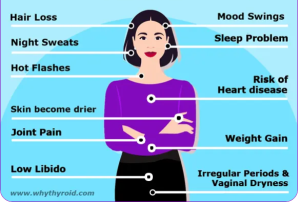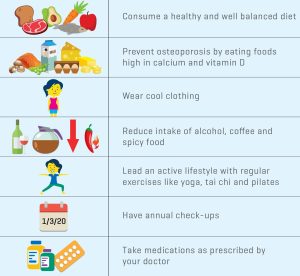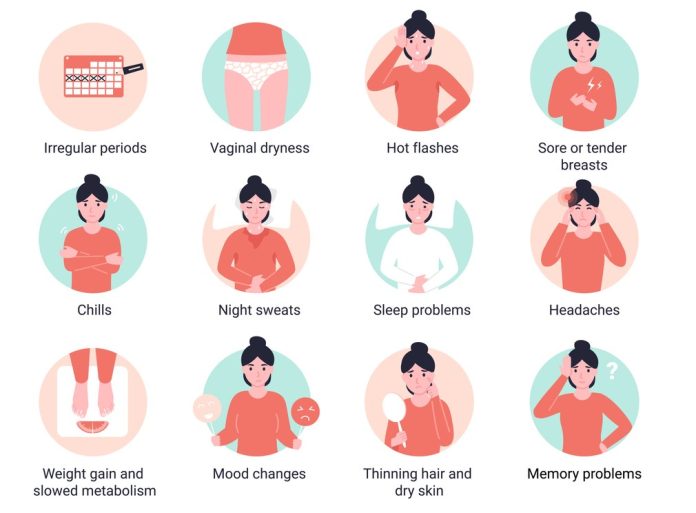It is common knowledge that most women grapple with the challenges of menopause as they endure varying symptoms that impact their lives on account of it.
Physicians warn that menopause can be a very challenging experience for women, depending on how informed they are about the aging process.
Medically, it marks the end of reproductive age characterized by cessation of menstrual period. Given this, it becomes a time of transition that often brings about physical, emotional and psychological changes that affect the average woman’s quality of life.
During this period, experts say, some women experience hot flashes, night sweats, mood swings, insomnia, vaginal dryness and other symptoms that are usually disruptive and may be distressing to cope with.
Women are said to report feeling dismissed or ignored by their healthcare providers when they seek help for their symptoms, and this lack of support can have a drastic impact on their health and well-being, says Dr. Louise Newton, a menopause specialist and general practitioner.
She noted that as far back as 2021, the global female population stood at approximately 3,905 billion, with many women already experiencing or set to experience menopause.
And by 2025, it is projected that the number of postmenopausal women is expected to reach 11 billion worldwide.
Statistics also indicate that women aged 40 to 59 have the highest rate of depression among age and gender groups, and they face a higher risk of cognitive diseases, such as Alzheimer’s.
Dr. Newton says providing women unbiased information is crucial to helping them navigate this phase objectively. She then advocates a more open and honest conversation about menopause and its antecedent challenges.
She says women should be given accurate information about the risks and benefits of Hormone Replacement Therapy (HRT) so that they can make informed decisions about their treatment options.
“However, unfair treatment, including prejudice and discrimination, is still being experienced in work places, and women going through menopause often face negative attitudes from colleagues or employers who view them as less productive or capable because of their symptoms,” said Dr. Newton, adding that this discrimination can have serious consequences on women’s careers and financial security.
In the perspective of Dr. Newton, discrimination can cover many aspects linked to menopause including sex and disability, harassment and victimization as women concerned may be subjected to unfair treatment because of their age or gender.
This can lead to reduced opportunities for career advancement or job loss as the women may face harassment or bullying from colleagues or managers who do not understand the challenges of menopause.

Experts advise women in this situation to protect themselves by speaking up and documenting any unfair treatment they are faced with. Newton also suggests that women can seek support rather than choosing to suffer in silence during menopause.
She also disclosed that menopause affects women in various ways with symptoms such as lack of concentration, energy and reduced confidence that can impact their lives, while some women even go as far as contemplating leaving their jobs.
 Cost-effective management of menopause
Cost-effective management of menopause
Asserting that it is crucial for every woman to know which safe, low-cost, and effective treatments are available, Dr. Newton said women need to be well-informed about them and have access to these solutions.
She however stressed that HRT remains the most effective treatment, sadly, it is not suitable for every woman, especially those who have had a history with cancer, blood clots or other medical conditions.
She noted that there are, luckily, other treatments available that can help manage the symptoms such as non-hormonal medications, lifestyle changes and alternative therapies.
She then emphasized the need for evidence-based test and unbiased information, ensuring that the content and education provided during the menopausal transition remains independent.
She noted that moreover, women can also take practical steps to manage their symptoms and improve their overall health through regular exercise, healthy diet, stress management techniques to help lighten their traumas, while advising them to prioritize self-care and seek support from friends, family or support groups.

Billion-dollar menopause market
A new report has revealed that the current market products and services addressing women’s menopausal needs is worth as much as $600 billion.
Menopausal phase is made rather complex by various symptoms influenced by genetic and lifestyle factors, Dr. Newton informed.
Regrettably, despite these challenges, innovation in women’s health for later life remains scarce, adding that not many companies have made significant progress in areas like menstrual health, fertility and pregnancy, but have largely neglected the needs of the nearly one billion women entering menopause, Dr. Newton adds.


